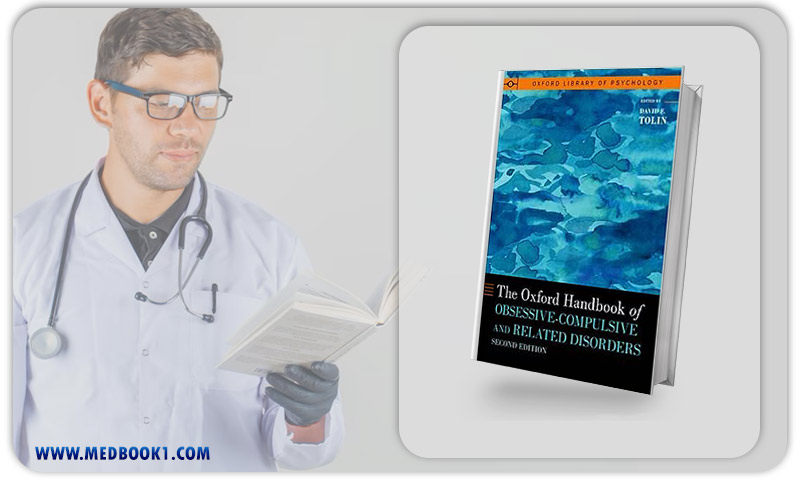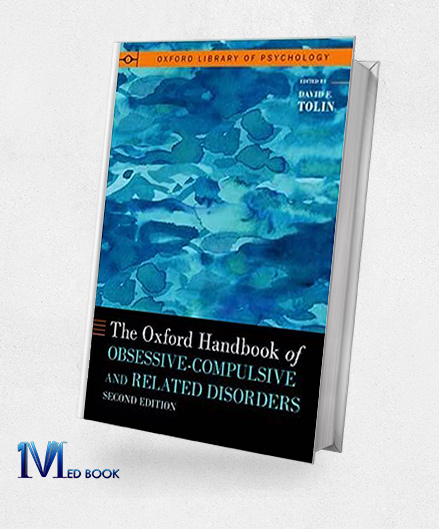The Oxford Handbook of Obsessive-Compulsive and Related Disorders (Original PDF from Publisher)
The Oxford Handbook of Obsessive-Compulsive and Related Disorders (Original PDF from Publisher)
$177.15 Original price was: $177.15.$26.00Current price is: $26.00.
- The files will be sent to you via E-mail
- Once you placed your order, we will make sure that you receive the files as soon as possible
The Oxford Handbook of Obsessive Compulsive and Related Disorders (Original PDF from Publisher)
1.1.Description
With the release of the Diagnostic and Statistical Manual of Mental Disorders, 5th Edition (DSM-5), there has been a significant shift in the conceptualization of obsessive-compulsive disorder (OCD) and its related spectrum conditions.
Departing from the previous classification within anxiety disorders, a new diagnostic category known as “obsessive-compulsive and related disorders” (ORCDs) has emerged, offering an opportunity to deepen our understanding of these distinct conditions and explore new avenues of research.
The second edition of The Oxford Handbook of Obsessive Compulsive and Related Disorders gathers insights from leading experts in the field to provide the latest information on the epidemiology, phenomenology, assessment, and treatment of ORCDs.
Beginning with a review of the prevalence and profiles of specific disorders within the spectrum, including OCD, body dysmorphic disorder, hoarding disorder, trichotillomania, and excoriation disorder, the volume delves into modern conceptualizations, encompassing neurocircuitry, genetic, behavioral, and cognitive models.
Comprehensive coverage extends to assessment strategies, state-of-the-art biological and psychological treatments, and considerations of OCRDs across diverse cultures and in special populations such as children and older adults.
This handbook serves as a valuable resource for professionals seeking a thorough understanding of the evolving landscape of obsessive-compulsive and related disorders.

Obsessive Compulsive and Related Disorders
1.2.Key Features
The key features of The Oxford Handbook of Obsessive-Compulsive and Related Disorders include:
- Comprehensive Coverage: The Oxford Handbook of Obsessive Compulsive and Related Disorders provides a thorough exploration of obsessive-compulsive and related disorders (ORCDs), covering prevalent conditions such as OCD, body dysmorphic disorder, hoarding disorder, trichotillomania, and excoriation disorder.
- Up-to-date Information: Incorporating insights from leaders in the field, the handbook offers the latest information on the epidemiology, phenomenology, assessment, and treatment of ORCDs. It specifically addresses changes brought about by the DSM-5, reflecting contemporary perspectives.
- Modern Conceptualizations: The Oxford Handbook of Obsessive Compulsive and Related Disorders discusses modern conceptualizations of ORCDs, encompassing neurocircuitry, genetic, behavioral, and cognitive models. This ensures that readers gain a current and comprehensive understanding of the disorders.
- Assessment Strategies: The book reviews assessment strategies, providing valuable insights into the methods used to understand and diagnose ORCDs, contributing to improved clinical practices.
- State-of-the-Science Treatments: A focus on state-of-the-science biological and psychological treatments, including pharmacotherapy, neurosurgical strategies, behavioral therapies, and cognitive therapies, equips professionals with the latest advancements in managing these disorders.
- Cross-Cultural Considerations: The Oxford Handbook of Obsessive Compulsive and Related Disorders explores the presentation and treatment of ORCDs across different cultures, recognizing the importance of cultural contexts in understanding and addressing these conditions.
- Special Populations: The handbook addresses the unique considerations related to ORCDs in special populations, including children and older adults, ensuring a holistic perspective on diagnosis and treatment.
- Contributors: The Oxford Handbook of Obsessive Compulsive and Related Disorders features contributions from 104 scientists and clinicians representing 67 universities and university hospitals in 25 countries, offering a diverse and internationally recognized perspective.
In summary, The Oxford Handbook of Obsessive-Compulsive and Related Disorders stands out as a comprehensive and up-to-date resource, providing a nuanced understanding of ORCDs and their assessment and treatment across various contexts and populations.

Obsessive Compulsive and Related Disorders
1.3. About Writer
Dr. David F. Tolin is a prominent clinical psychologist and researcher known for his significant contributions to the field of obsessive-compulsive and related disorders (ORCDs). Serving as the Director of the Anxiety Disorders Center and the Director of the Institute of Living-Hartford Hospital, Dr. Tolin is affiliated with the Hartford Healthcare Behavioral Health Network. With a Ph.D. in Clinical Psychology, he has devoted his career to advancing the understanding and treatment of anxiety and related conditions.
Dr. Tolin is recognized for his extensive research, particularly in the areas of cognitive-behavioral therapy (CBT) and exposure and response prevention for OCD. His work has been published in numerous peer-reviewed journals, and he has authored several influential books on anxiety disorders.
Dr. Tolin’s expertise and leadership in the field have established him as a respected figure, contributing to the improvement of mental health treatment practices globally.

Obsessive Compulsive and Related Disorders
Summary
The Oxford Handbook of Obsessive Compulsive and Related Disorders delves into the evolving landscape of obsessive-compulsive and related disorders (ORCDs) following the changes introduced by the DSM-5.
Renowned experts in the field explore the epidemiology, phenomenology, assessment, and treatment of ORCDs, encompassing conditions such as obsessive-compulsive disorder, body dysmorphic disorder, hoarding disorder, trichotillomania, and excoriation disorder.
The volume delves into contemporary conceptualizations of ORCDs, incorporating neurocircuitry, genetic, behavioral, and cognitive models.
Comprehensive assessment strategies are discussed, followed by a thorough examination of state-of-the-art biological and psychological treatments, including pharmacotherapy, neurosurgical strategies, behavioral therapies, and cognitive therapies.
Cultural variations in presentation and treatment, as well as considerations for special populations like children and older adults, are also addressed.
The handbook offers a comprehensive and up-to-date resource for understanding and managing the complexities of ORCDs.



Reviews
There are no reviews yet.